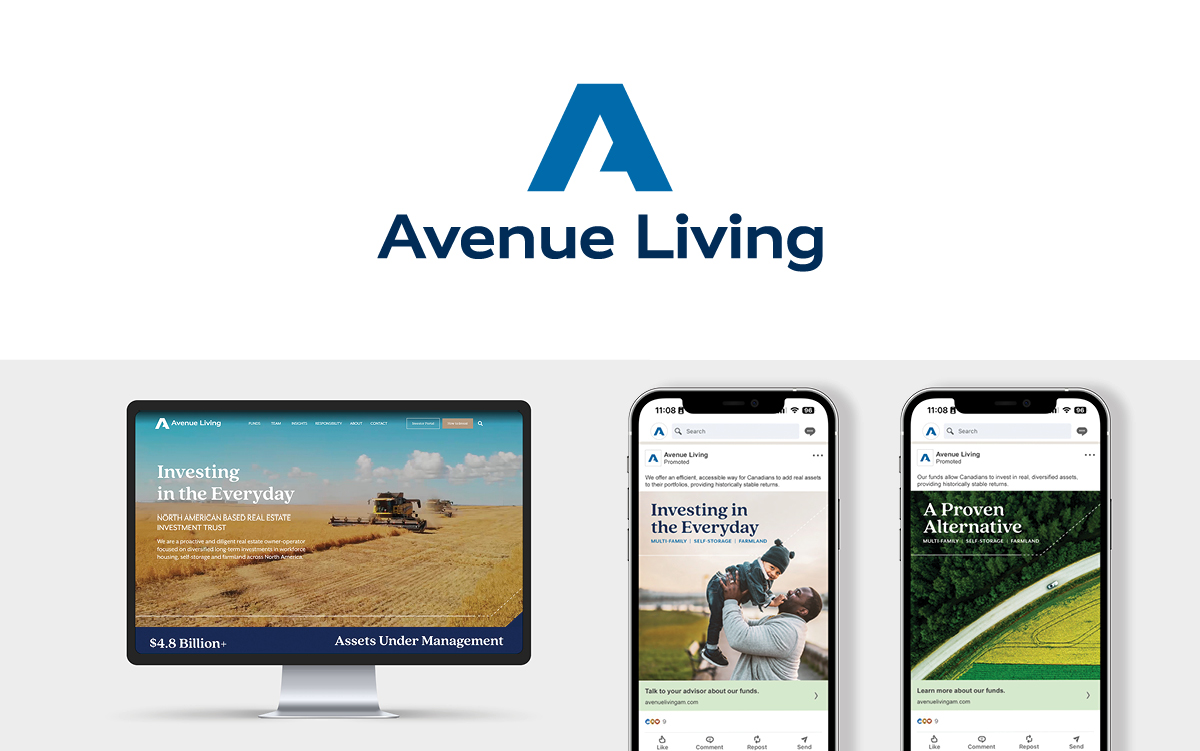As our leadership team reflects on the first half of 2023, the theme is one of sustainability and continued growth for Avenue Living. As we progress throughout the year, we’re poised to reach new milestones given the strong foundation we have spent the last few years cultivating. Each of our funds has access to a robust vertically integrated platform with talented experts in finance, legal, marketing, technology, accounting, HR, and customer service to support their operations. As we grow, that platform scales with our different businesses, allowing us to maximize efficiency across the organization.
Multi-Family
This year, our Core Trust has sustained its steady growth trajectory, as the groundwork from previous years allowed us to find upside in constrained markets. Our approach as an active property manager, and the platform we have built to support our operations, has helped us deliver superior resident experiences and manage our assets while mitigating rising costs.
“We remain focused on our defensibility and advancing our business for the rest of 2023,” says Avenue Living Founder and CEO, Anthony Giuffre. “We continue to be bullish on the Prairies given its population growth and affordability when compared to other markets.” Our multi-family acquisition pipeline includes over 3,000 units in the region which have the potential to close in the latter half of 2023 or early 2024, which could bring our portfolio to over 18,000 units.
“Our investments in people and technology have created the basis for us to support new acquisitions across our asset base without increasing management costs,” says Jason Jogia, CIO of Avenue Living. “This ability to scale, coupled with our ability to borrow strategically while taking advantage of the inverted yield curve, allows us to minimize our costs while investing in our assets and delivering a superior resident experience.”
Sustainability remains a key cornerstone of our business, as we invest in capital improvements and strategically plan our projects to reduce greenhouse gas emissions across our portfolio. These projects — many of which will launch in the second half of 2023 and progress over the next four years as part of our landmark partnership with the Canada Infrastructure Bank — will improve the energy consumption of approximately 240 buildings and enhance comfort for around 10,000 Avenue Living Communities residents.
Self-Storage
Mini Mall’s focus on operational efficiency at the beginning of 2023 has been key to its growth. This approach has allowed the front-line customer service team to deliver a consistent experience at every location, bringing new acquisitions to the MMSP standard.
“With over 100 stores coming online last year, we wanted to stabilize our operations and quickly produce consistent performance and results on these assets,” says MMSP CEO, Adam Villard. Mini Mall delivered on that by adding operational expertise to the executive team and focusing on efficiency, resulting in close rates increasing by 48% and delinquencies decreasing by 84% between January to June.
“We’ve really been focused on ‘the three C’s’,” says Villard, “closing, cleaning, and collecting.” By putting strategic practices in place to help close leads, bringing facilities up to the Mini Mall standard for aesthetics and cleanliness, and lowering delinquencies, site managers and staff can concentrate on creating a seamless customer experience across the organization.
Mini Mall also implemented new marketing and customer service strategies to refine its lead generation process, which doubled results between the end of March to the end of June. “Those efforts are really what’s driving our business right now,” says Villard.
Going forward, Villard sees Mini Mall maintaining strong occupancy throughout the winter to balance the seasonal fluctuations the industry is known for, and continuing to drive targeted programs to build on revenue and occupancy numbers.
Farmland
2023 has been a notable year for our farmland investments as we developed and launched Tract Farmland Partners – building on the success of our Avenue Living Agricultural Land Trust. Interest in farmland as an investment gained traction during the pandemic and it shows no signs of slowing. In its first six months, Tract now holds 3,560 acres of arable land.
CEO of Tract Farmland Partners and Agricultural Land Trust, Leif Snethun, credits the recent world events for the uptick in people’s interest in food supply, noting that the launch of the Agricultural Land Trust in 2017 was slower to get underway than Tract has been. There has always been interest in farmland, but since 2020 it has become more widespread among investors.
“The farmland industry has always been a wonderful space to be in,” says Snethun. He sees Tract adding more assets to its portfolio for the remainder of 2023. “I’m eager to see the momentum build as people remain interested in the agricultural sector and want to know where their food comes from.”
Our Path Forward
The first half of 2023 has been significant for our investment vehicles, as we fostered our ground-breaking partnerships, launched new projects, and saw growing investor interest in our asset classes. Our active management model and platform of services — coupled with careful planning and analysis — will allow us to capitalize on a breadth of opportunities. We’re excited to continue driving our business forward and deliver a competitive advantage in these unique economic times.
This commentary and the information contained herein are for educational and informational purposes only and do not constitute an offer to sell, or a solicitation of an offer to buy, any securities or related financial instruments. This article may contain forward-looking statements. Readers should refer to information contained on our website at https://avenuelivingam.wpenginepowered.com/forward-looking-statements for additional information regarding forward-looking statements and certain risks associated with them.










